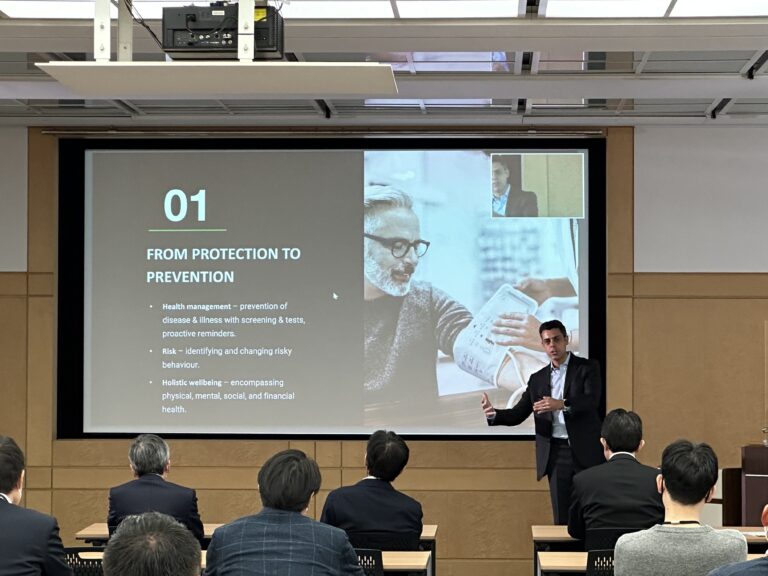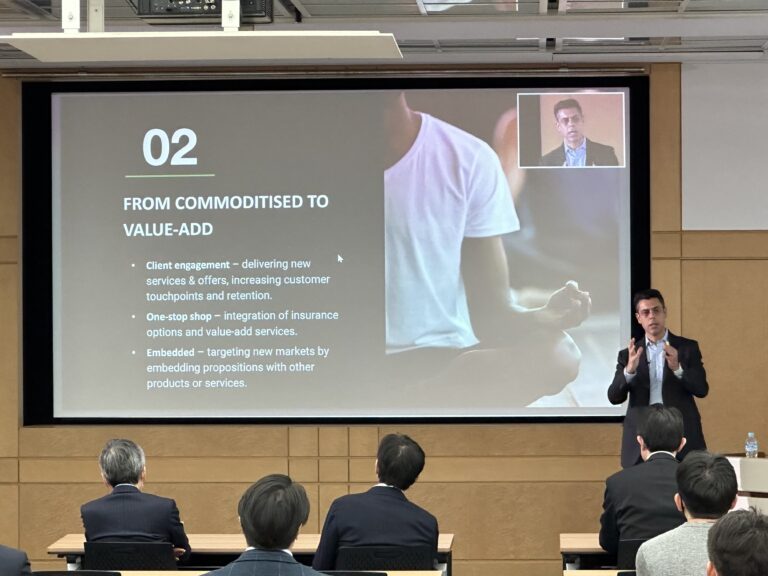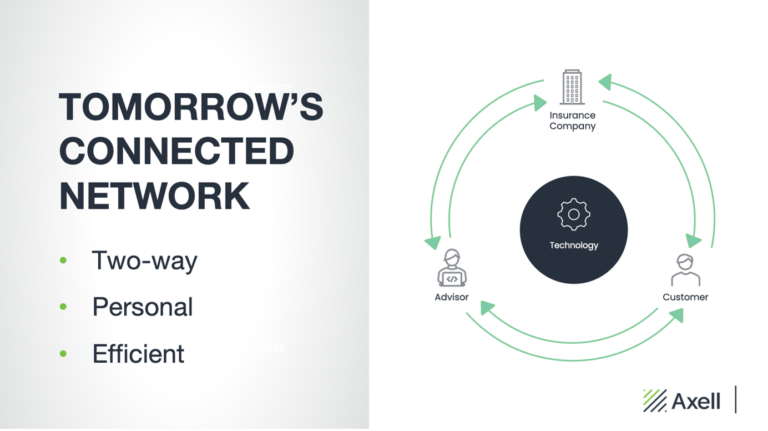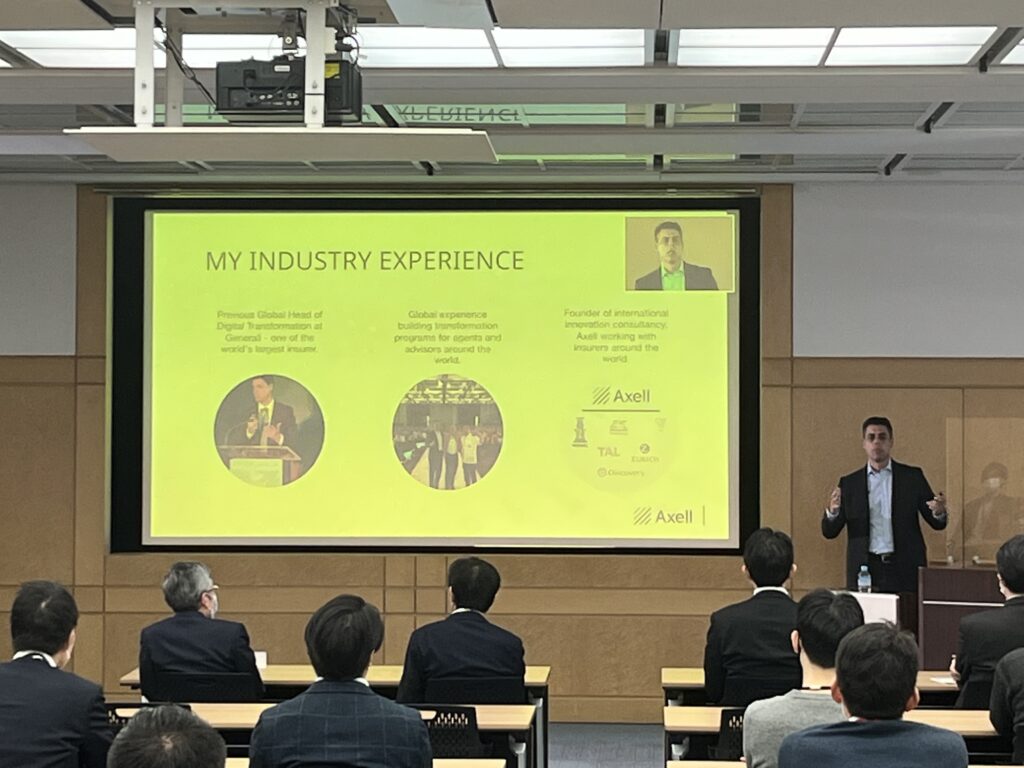Imagine a future world where customers are actively engaged in their insurance. A world where they proactively manage their health, recommend cover to friends, sign-up and engage digitally, and are loyal across their lifecycle.
What’s more, imagine a future where insurance is a sustainable business model with hyper-personalised products that are predictive of individuals’ needs. Or where high-performing talent is retained by having their wellbeing prioritised with flexibility and meaningful benefits.
This is the future of insurance. A world where customers, employees, and the insurer are engaged in a win/win relationship.
I was recently invited to attend a leadership summit hosted by Japan’s largest life insurer, Dai ichi Life Holdings to present my insights into the 6 key trends insurers need to embrace to emerge as future winners.
1. From Protection to Prevention
Traditionally, insurance has been about risk mitigation. Cover to protect against something going wrong and nothing else. But reframing it as a proposition to help customers manage their health to prevent a claim not only helps customers see value, but it can also improve their overall wellbeing.
Prevention can mean helping customers manage their health with doctor visits, health check reminders or free screens and tests. It may be targeting long-term behavioural change to reduce risk taking, like smoking or drinking. Or it could be programs designed to build positive behaviours, such as regular exercise, saving for retirement, or healthy eating.

2. From Commoditised to Value-Add
Building on this ambition to increase customer engagement, the insurers of tomorrow will offer tailored services and programs to each individual. Customers will also be able to self-select what services they see value in to personalise their experience.
Integration and embedding the services throughout the customer journey will drive engagement in a more holistic insurance offering. Similarly, embedding insurance propositions alongside other products and services at point-of-sale helps position insurance as an integrated offering – rather than an optional add-on often considered after sale.
3. Streamline the end-to-end customer experience
Insurance has been around for hundreds of years, and some of the processes surrounding customer admin can feel that way at times. But customer expectations have rapidly evolved and they’re now comparing their experience with Amazon or Uber to their insurers.
Automation and digitisation of workflows not only bring operational efficiencies, it can improve the customer experience and bring valuable data for ongoing optimisation. New technology is also helping insurers combat cybersecurity threats, such as fraud detection and digital identity authentication.

4. Profitability via portfolio management
One asset insurers are not short of is data. Decades of experience with millions of customers sharing billions of records of personal information are resources for AI models to predict new sales, up/cross-sell, and retention opportunities.
Reinsurers are also leveraging technology to predict longevity risk and transferring it via hedging on capital markets. A new strategy for ensuring the ongoing sustainability of the industry.
5. A hybrid of human and tech
While the world is going digital, customers still want the option to engage with a real person who understands their needs. Digital-first insurers can offer sleek online experiences from application, underwriting and on-boarding. But they can’t compete with traditional insurers with wide distribution networks of agents and advisers that have personal relationships with their customers.
Enabling agents to go digital with multi-channel messaging, customer 360 views, automated task management, and professional content will empower them to be more efficient and deliver a better experience.

6. Prioritising employees in group insurance
Transitioning group insurance from a B2B to B2B2C model is a strategic opportunity to increase reach and deepen the value of the product. Group insurance has been a homogenous product with very low investment in engaging customers. Bringing new value-add services focused on incentivising holistic wellness not only benefits employees. It also pays back employers 5x for every dollar spent with increased productivity in the workplace.

About Moshe
Axell’s Founder has spent over 25 years reinventing financial services businesses with design-led thinking and disruptive technology solutions. He was previously the Global Head of Digital Transformation at Generali – one of the world’s largest insurers. Moshe is a passionate leader working with executives and distribution teams around the world. He now works with global corporate insurers to rapidly transform using Axell’s proven innovation methodology and network of technology partners to design new solutions to today’s problems.



